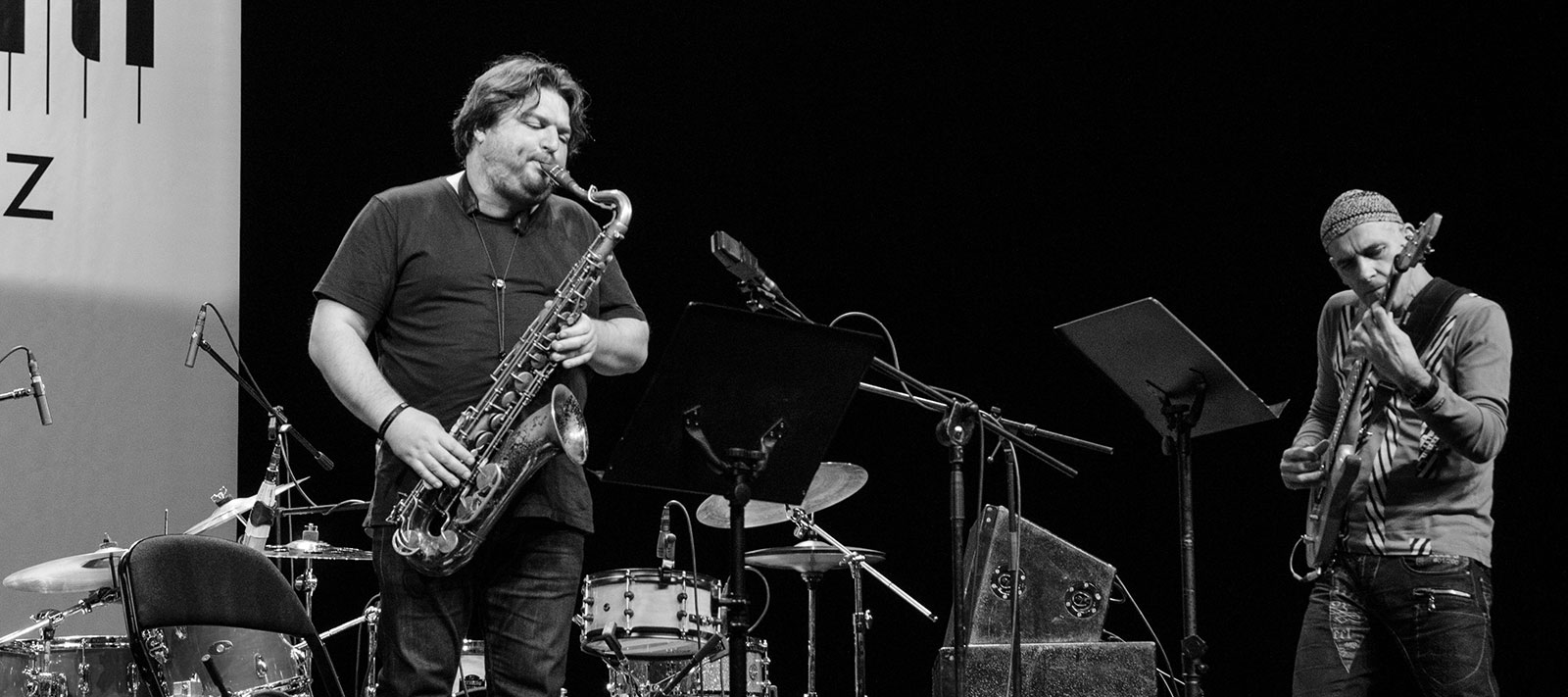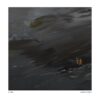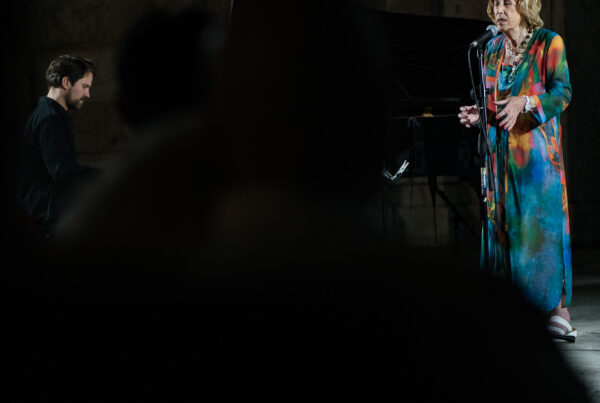
It all starts with Liudas Mockunas’s henaurmous sound, which fills the room in a few notes before Marc Ducret joins in with distorted sounds and a sinuous phrasing full of abrupt turns and sudden breaks.
Mockunas‘s delivery is torrential, but at times softly timbred between passages where he favors fiery raucousness. Ducret continues as a soloist, alternating single notes and strangely dissonant chords, rubbing on the lower strings, playing with fingers and pick.
And when Mockunas returns, it is with extreme tenderness. The second track begins with a unison of the two instrumentalists, then the two melodic lines separate and Mockunas alternates slaps and shrieks while Ducret explores his neck with uncommon velocity.
These two have known each other for 20 years and know how to make their instruments sing in a totally original way. Make no mistake: behind the free-form aspects of their playing, Mockunas and Ducret are great lyricists. But they are free lyricists, opposed to any kind of mawkishness, backwardness or commercialism. They are also explorers who never get bogged down in the beaten track. Their obvious technical mastery is sometimes terrifying, and while Ducret is known and recognized internationally as a major and unique guitarist, Mockunas, whose reputation in France is less well known, is no less a rare gem, a joyful jewel from the shores of the Baltic that criss-crosses Europe from his Lithuanian stronghold. Switching to soprano, the saxophonist deploys a mellow tone with a very light vibrato, while Ducret taps out delicate, repetitive arpeggios with a timbre of extreme finesse.
The next piece is based on a work by a Lithuanian composer from whom the two musicians drew inspiration. Here, too, the lyricism is obvious. The solo guitar rumbles, cries, moans or launches brief melodic phrases, sometimes staccato, sometimes legato: pure Ducret, whose unique style is immediately recognizable. When Mockunas joins in, an exciting dialogue begins, with unisons and two-part passages following one another. Then it’s the turn of the tenor sax to launch out on his own, with an abrupt phrasing and thick sonority that make him one of Europe’s most exciting tenors. Strangled sounds, grunts and tongue-clicking appear here as the elements of a perfectly coherent discourse, leading to a magnificent melodic flow with Benwebsterian accents and a strong emphasis on interval work. This is followed by a piece in which parallel lines, whether in unison or not, once again take pride of place.
Ducret plays a more or less bassist’s role, while his partner improvises torrent-like, digging deep into the sound. Ducret then launches into a flamboyant solo parallel to the sax’s sonic explorations. It’s a wild ride to follow, for these two never run out of surprises, as when Marc reverts to melodious, airy arpeggios with a beautifully metallic sound, while Liudas embarks on the soprano, on which he deploys a magnificent roundness of tone and an extremely limpid slow phrasing over the buzzing guitar. Then Mockunas switches to the sopranino sax, an instrument I’ve never seen him use before, and which he uses in a noisy, playful way, while Ducret plays muted over Mockunas‘s breath effects, back on the soprano.
This is followed by a deluge of sound, with Ducret exploring every nook and cranny of his guitar with both hands, while the sax adopts a torrential flow before returning to an impressive slowness and serenity on a very rocking accompaniment from the distorted guitar. The encore is a bouncy, playful piece in which the two musicians converse in a sort of frenzied chase.
It’s a bit of a race to see who can catch up or overtake the other, and it’s a real pleasure to hear and watch, ending with a bushy, rough unison that sweeps everything along in its wake, like the rivers that are in flood everywhere these days. And we’re flooded with pleasure, well sheltered from the elements in the magnificent den that is Le Triton des Lilas.
Line Up:
Liudas Mockunas: saxophones
Marc Ducret: guitar
©Photo Header Daiva Kloviene
©Photo Cover Maarit Kytoharju



















RECENT COMMENTS